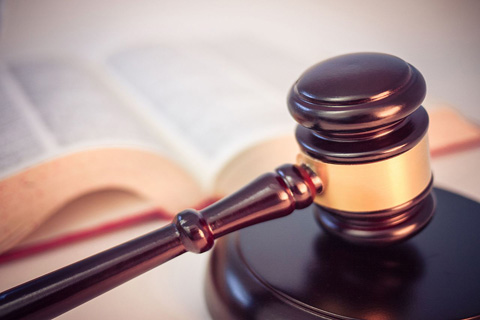Governor Signs DA-Supported Bill Clearing Convictions
An estimated eight million Californians have criminal convictions on their records that hamper their ability to find stable housing, obtain permanent employment or continue their education. Assembly Bill 1076, introduced by Assemblymember Phil Ting (D-San Francisco) and supported by San Diego District Attorney Summer Stephan, addresses these issues head-on by proactively clearing the past criminal convictions and arrests of about 380,000 Californians currently incarcerated. Governor Gavin Newsom signed the bill into law on Tuesday. [TWEET THIS]
AB 1076 would allow arrest and conviction record relief in an automated way that would not require any action from a petitioner. Although anyone could petition to have their past convictions cleared on their own, the amount of time and money required often prevents eligible people from doing so.
- This bill would ask the California Department of Justice to create a database of all those who have served time or probation and may be eligible to have their records expunged.
- Additionally, the Department of Justice would also generate an algorithm that would, on a monthly basis, go through qualifying records and search for those eligible to clear their past convictions and arrests.
- Lastly, AB 1076 would automatically notify corresponding courthouses that they are no longer able to release the history of those who have had their records expunged to any private enterprise.
“If people can’t find a job or housing, they are more likely to continue committing crimes and find themselves back in the criminal justice system,” DA Summer Stephan said. “This law takes the proactive step of clearing hundreds of thousands of records and gives people who qualify an opportunity to start fresh with the reassurance that their past won’t hinder their future.”
Assemblymember Ting, who introduced the legislation, has been working with various allies across the state to pass this legislation.
“Everybody deserves a second chance,” said Assemblymember Phil Ting. “We must open doors for those facing housing and employment barriers and use available technology to clear arrest and criminal records for individuals already eligible for relief. There is a great cost to our economy and society when we shut out job-seeking workers looking for a better future.”
Not everyone would qualify for relief. For example, anyone who has violated their probation or who is registered as a sex offender would not be eligible for arrest and conviction relief under AB 1076. Only those who have been arrested or convicted of misdemeanors or non-violent offenses would be eligible. Furthermore, although the criminal record of those who qualify would be wiped in most private background-check agencies, it would not remove the record from law enforcement databases and the record would be revealed if the person applies for any government job.
The Survey of California Victims and Populations Affected by Mental Health, Substance Issues, and Convictions found that about 76% of all people with criminal convictions report difficulty in finding permanent housing, employment, or a driver’s license. A 2019 report released by the California Department of Corrections and Rehabilitation reported that attempts to reduce inmate recidivism had failed for about 62% of inmates released in 2017 and 2018. AB 1076 would be a step forward in addressing California’s high recidivism rate and would allow those with criminal convictions better opportunities to find jobs and obtain homes after incarceration.
AB 1076 will take effect on January 1, 2021. This extended period of time will allow the Department of Justice to set up the automated system that would allow the criminal records to be cleared without the need of any individual petitions. [TWEET THIS]



